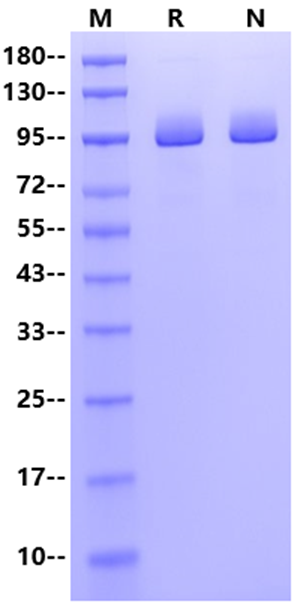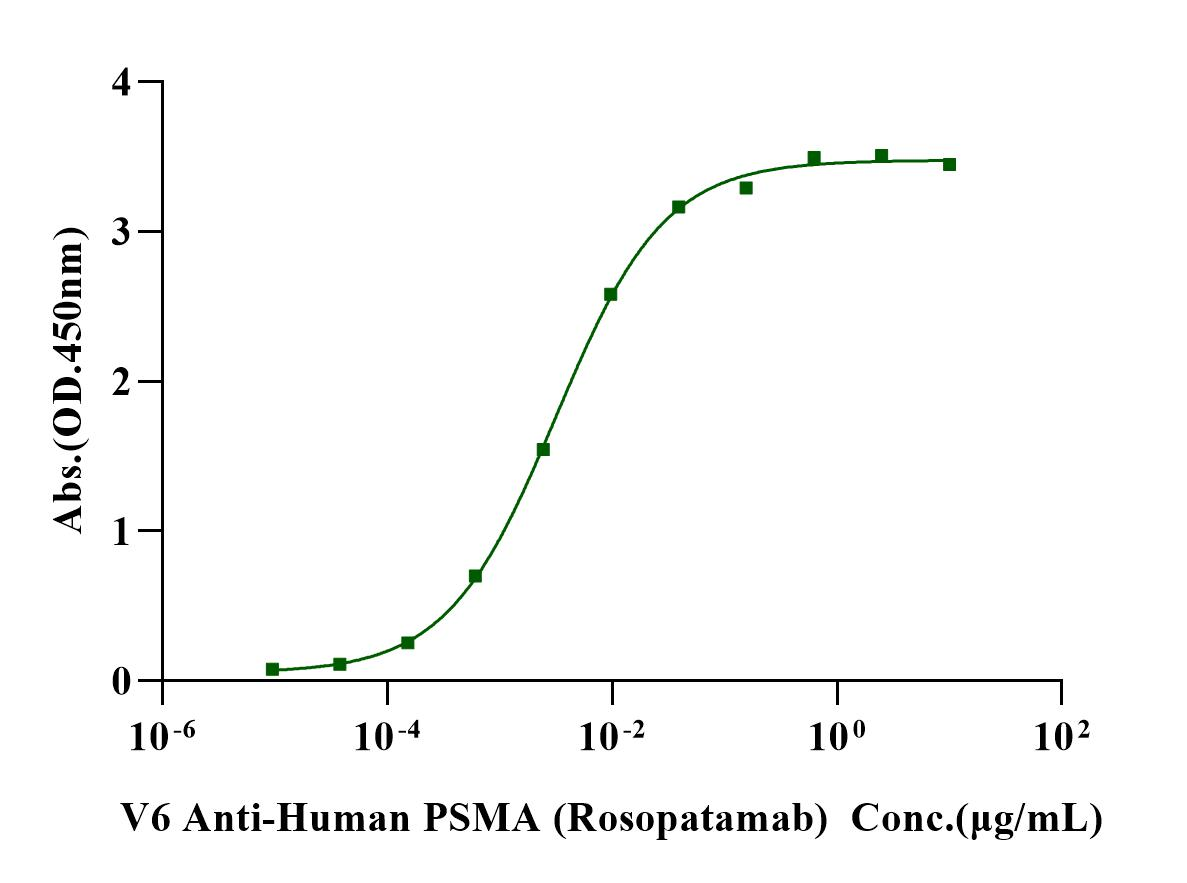Lys44-Ala750, with N-terminal 10*His HHHHHHHHHHGGGSGGGSKSSSEATNITPKHNMKAFLDELKAENIKKFLHNFTQIPHLAGTEQNFQLAKQIQSQWKEFGLDSVELTHYDVLLSYPNKTHPNYISIINEDGNEIFNTSLFEPPPAGYENVSDIVPPFSAFSPQGMPEGDLVYVNYARTEDFFKLERDMKINCSGKIVIARYGKVFRGNKVKNAQLAGATGVILYSDPADYFAPGVKSYPDGWNLPGGGVQRGNILNLNGAGDPLTPGYPANEYAYRRGIAEAVGLPSIPVHPIGYYDAQKLLEKMGGSASPDSSWRGSLKVPYNVGPGFTGNFSTQKVKMHIHSTSEVTRIYNVIGTLRGAVEPDRYVILGGHRDSWVFGGIDPQSGAAVVHEIVRSFGTLKKEGWRPRRTILFASWDAEEFGLLGSTEWAEENSRLLQERGVAYINADSSIEGNYTLRVDCTPLMYSLVYNLTKELESPDEGFEGKSLYESWTKKSPSPEFSGMPRISKLGSGNDFEVFFQRLGIASGRARYTKNWETNKFSSYPLYHSVYETYELVEKFYDPMFKYHLTVAQVRGGMVFELANSVVLPFDCRDYAVVLRKYADKIYNISMKHPQEMKTYSVSFDSLFSAVKNFTEIASKFSERLRDFDKSNPILLRMMNDQLMFLERAFIDPLGLPDRPFYRHVIYAPSSHNKYAGESFPGIYDALFDIESKVDPSQAWGEVKRQISIATFTVQAAAETLSEVA
95-110kDa
Reconstitute at 0.1-1 mg/ml according to the size in ultrapure water after rapid centrifugation.
· 12 months from date of receipt, lyophilized powder stored at -20 to -80℃.
· 3 months, -20 to -80℃ under sterile conditions after reconstitution.
· 1 week, 2 to 8℃ under sterile conditions after reconstitution.
· Please avoid repeated freeze-thaw cycles.
1、Su S L. et al. (1995) Alternatively spliced variants of prostate-specific membrane antigen RNA: ratio of expression as a potential measurement of progression. Cancer Res. 55: 1441-1443.
2、O'Keefe D S. et al. (1998) Mapping, genomic organization and promoter analysis of the human prostate-specific membrane antigen gene. Biochim Biophys Acta. 1443: 113-127.
PSMA is a transmembrane protein present in all prostatic tissues. Increased PSMA expression is seen in several malignancies, although prostate cancer is the tumour where it presents higher concentrations. Almost all prostate adenocarcinomas show PSMA expression in most of lesions, primary and metastatic. Immunohistochemistry has demonstrated that the expression of PSMA increases in patients with de-differentiated, metastatic or hormone-refractory tumours. Moreover, the expression level of PSMA has a prognostic value for disease outcome.


Immobilized PSMA/FOLH1 His Tag Protein, Cynomolgus (Cat. No. UA010346) at 2.0μg/mL (100μL/well) can bind V6 Anti-Human PSMA (Rosopatamab) with EC50 of 2.81-3.59 ng/mL.